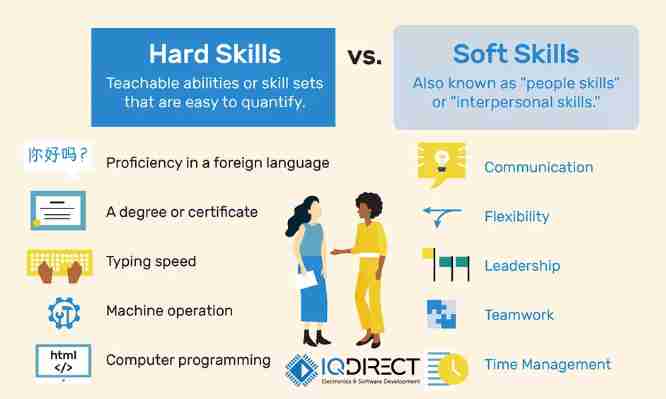
The software development industry is growing at a phenomenal pace, and product requirements are constantly growing. To develop a product, a multi-tasking programmer who does everything alone is no longer enough. Behind any project, be it an open-source web server or commercial CRM, there is a team of specialists, each of which has its own area of competence.

Of course, every technical specialist should have a scientific and technical basis for understanding the operation of the entire system as a whole. These skills include understanding the OS, network stack, the principles of database operation, and the mathematical approaches that underlies any algorithm or protocol. However, these skills alone cannot be useful unless they are integrated into the overall development process. Thus, the need for the development of soft skills becomes more and more obvious. The ability to achieve the assigned task together is something that technical specialists often miss. It happens that communication issues are not given due attention. Improving communication skills is not only due to the study of materials on this topic, but also requires daily practice and changes in their already familiar patterns of behavior. Learning to code is important even for kids.
Skills traditionally referred to as hard skills
First of all, skills in constructing and analyzing software algorithms. This skill is formed by the study of standard algorithms, the analysis of their complexity and the practical implementation of approaches to the construction of algorithms.
Along with the algorithms are data structures. The subject that is being studied is called Algorithms and Data Structures. Understanding, the ability to build and apply various data structures is based on the study of how computers work as such.
The ability to apply software design patterns, switch between different programming paradigms. You never know, tomorrow you will see object-oriented or functional code, but you still need to design a solution.
Skill and desire for automation. The programmer must be able and willing to get rid of the routine. If you often start to write the same thing - it's time to create a factory.
The skill of analyzing someone else’s code. Programs are rarely created alone, you need to get a knack for a quick understanding of the work of colleagues to integrate systems.
The skill of working with documentation. You need to be able to understand the technical text of other developers and write your own. The more complex the system you create, the more work with the documentation.
Skill "dig deeper." If you are using a turnkey solution or someone else’s technology, you need to be prepared to “look under the hood” and remake something for yourself. This seems to be and always will be.
Skills usually related to soft skills
The skill of working with a task. Includes refinement and decomposition of the task.
The ability to evaluate your time. In development, everything is always connected with the timing. Estimates close to reality will always be in price.
Ability to work in a concentrated manner. The easier a programmer falls into the feeling “I can’t get distracted, I’m writing code”, the more productive and efficient it is.
The ability to ask the right question. Correctly - means, looking for the answer yourself, and not finding the answer, formulating all the input for the answer by colleagues or the community.
The skill to prevent one’s or other's mistakes in time. Feel the deviation from the deadline in time and say about it, notice that the colleague in the previous commit took the path that would cause problems, and discussing is a very valuable skill.
The ability to learn. This is a skill. You will always have to learn, the industry is dynamic, it will always be that way.
Ability to admit a mistake and change the approach. A normal attitude toward work is the acceptance that refactoring is omnipresent and inevitable.
Focus on the task, not technology. It's easy to be fascinated by trendy frameworks that are talked about in meetups. But the task is really important. The skill of choosing an introductory technology is the path of the strong.
Be a good person. This is also a skill. We are not locked in a cage and work with people: we conduct reviews, discuss decisions, share knowledge, learn new things from others. People will readily meet you if you learn to be kind and open.